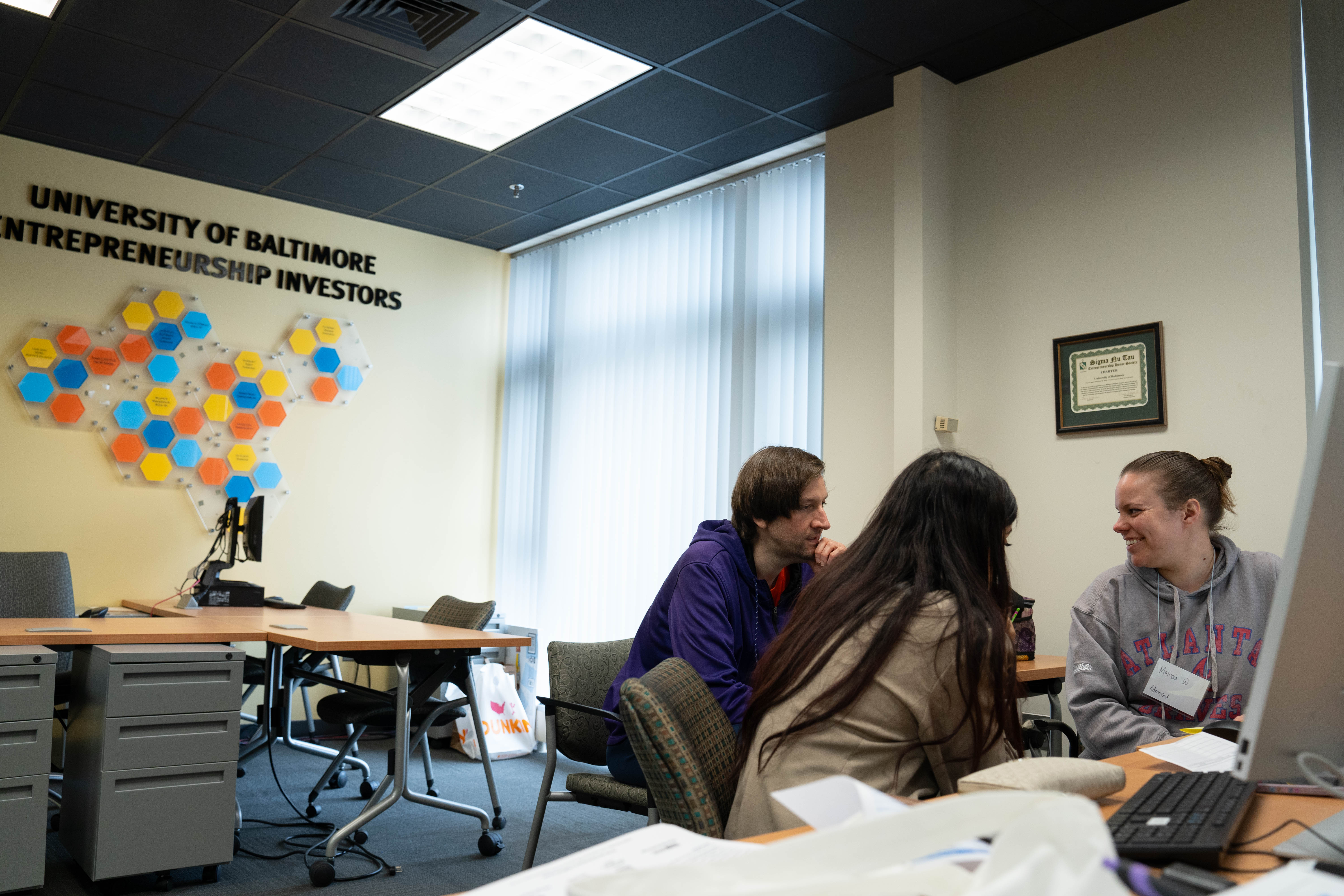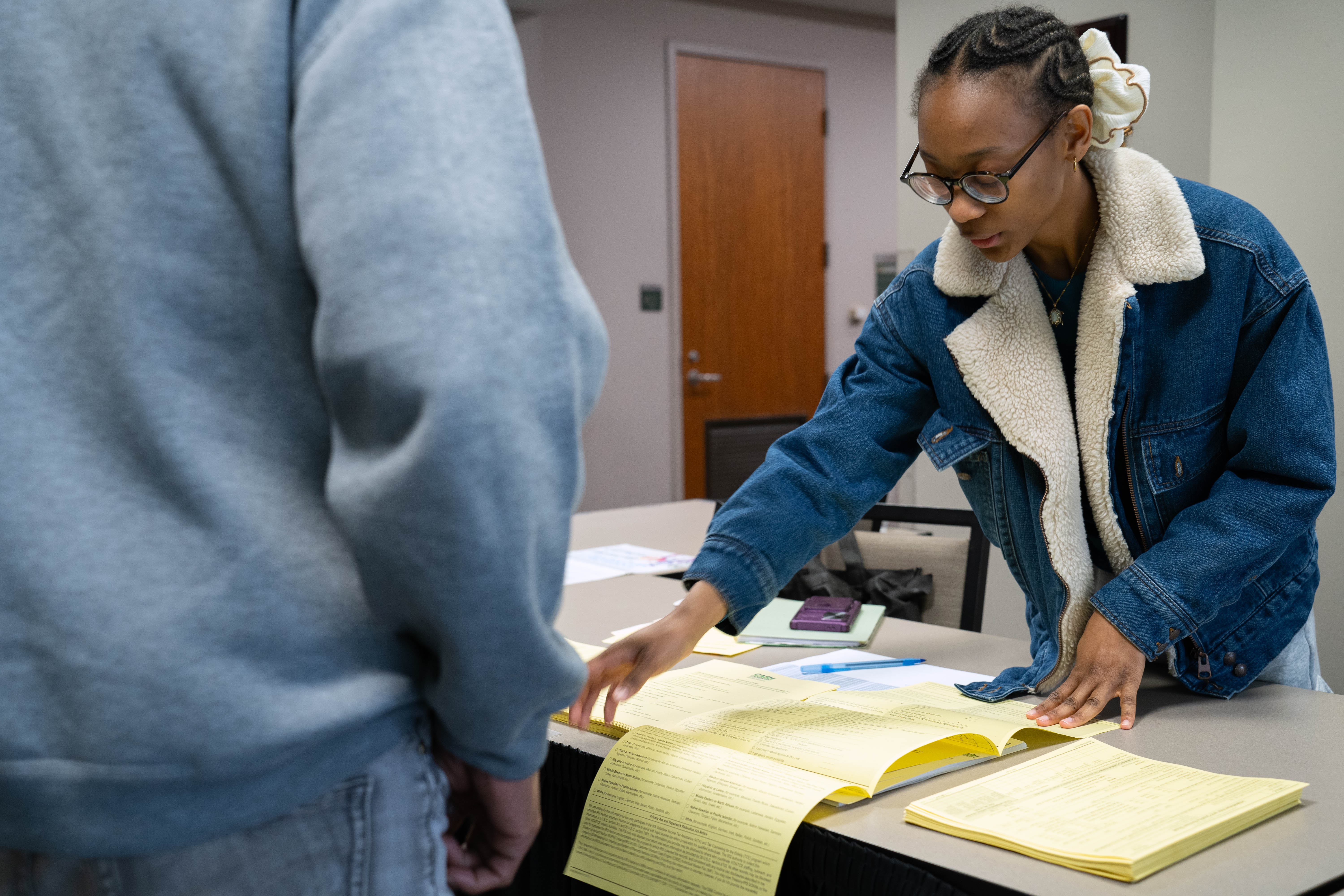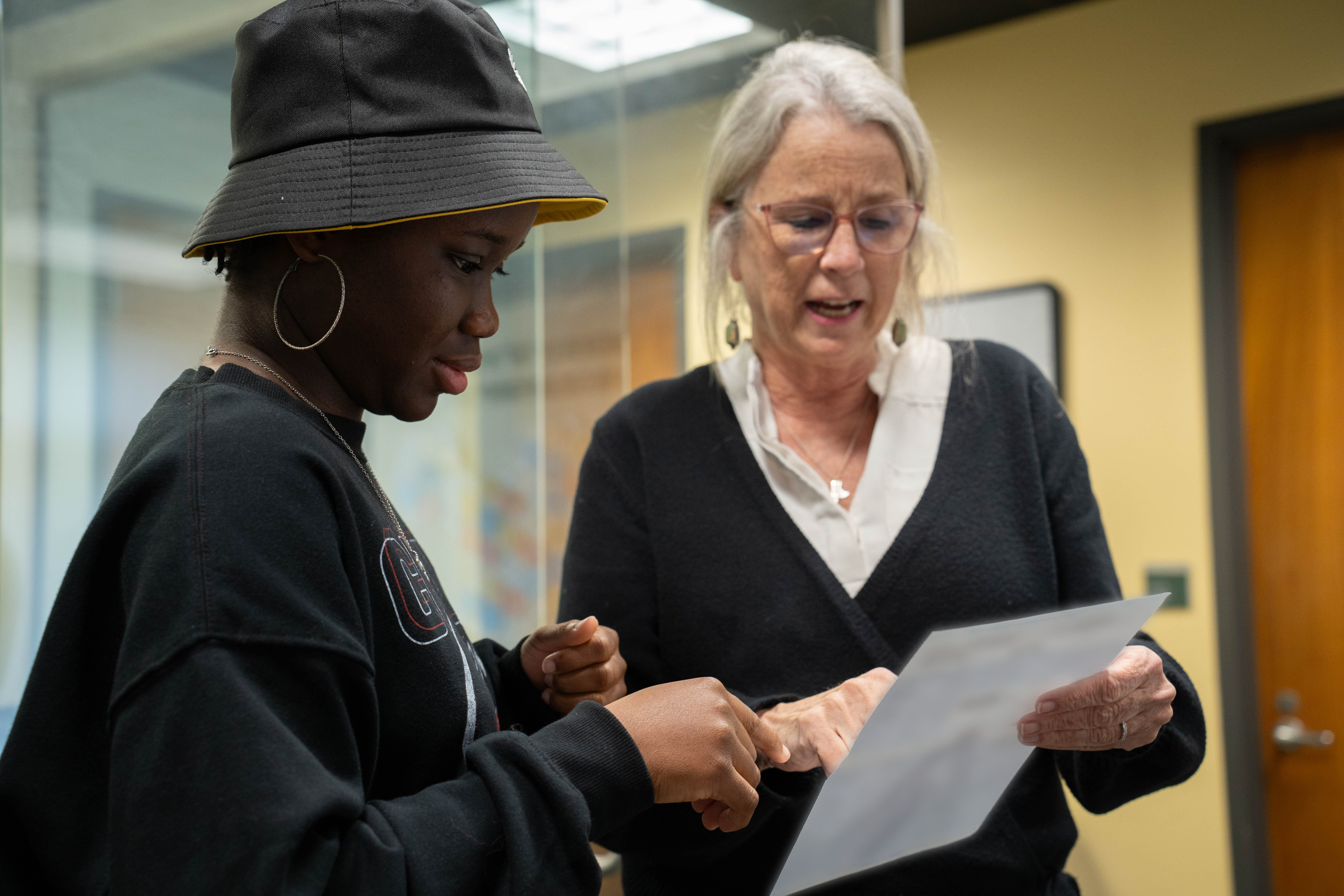
As a budding accountant, Zelda Farhat thought she knew what to expect in an accounting course. Then she transferred to The University of Baltimore and enrolled in ACCT 405.
Although often perceived as a standard introductory accounting course, Income Taxation offered a unique learning experience this semester. Kathryn Demarest, associate dean and lecturer in accounting, integrated a service-learning component that gives students an opportunity to apply their knowledge by helping real clients with their income tax filings.
Farhat, who hopes to change from a career in nursing to one in accounting, has enjoyed the opportunity to put class lessons to practice.

“In the book, everything is perfect. You have one W-2, you go through a checklist and you're done. But in real life, you don't have one W-2, you have a 1099, and then it’s, well, what else do you
have?” explains Farhat, an undergraduate accounting certificate student. “The format of this class, having it in person and this volunteering portion, is what I really, really like so far. And it's unique because I haven't had that in another class before.”
Demarest worked with Atom Zerfas, coordinator of engagement and service-learning at UBalt, to give the accounting course the service-learning component.
In spring 2024, the University received a mix of states funds and a grant to support faculty interested in adding a service-learning component to a course. There’s been interest each semester since.
First faculty apply and, if selected, they receive a stipend to transform their course for the first semester. Then they can work with Zerfas to designate that course for service learning for future semesters, with limited grant support for materials, travel and other needs. Demarest used part of her grant to supply lunch to her student volunteers.
ACCT 405 is one of four courses with the designation this spring semester. Past service-learning courses included a human services class that partnered with a local senior center, a literature class that made interactive children’s books for a library, and a design class that helped entrepreneurial students create and design logos and materials for their startups.
"Service-learning provides students with an opportunity to apply their learning and experience real situations while supporting local organizations and our community,” Zerfas said. “By working outside of controlled variables in the classroom or hypothetical situations, they can learn from experts in their fields and strengthen the skills needed to succeed post-graduation.”
As part of adding the service-learning component to Demarest’s class, the University partnered with the IRS’s Volunteer Income Tax Assistance (VITA). As a VITA site, the University can offer free tax assistance to people preparing their own tax returns. The program particularly serves those who earn less than $67,000, have disabilities or are limited English speakers.
Many colleges serve as VITA sites, but this is UBalt’s first time joining the program, Demarest said. She considered it an all-around win.

“Students who participate in the VITA program learn about taxes and they learn a lot of other skills: They learn customer service skills. They learn how to ask difficult questions. They learn technology skills,” Demarest said. “They come to understand other people's finances in a way that they wouldn't. Our tax law is written with certain intentions and then ends up having very inequitable results, and so students learn about that through experience. We also give back to the community.”
As part of the reimagined course, every student is required to attend at least three Saturday income tax preparation workshops. There are six workshops in all, and students that attend more can receive extra credit.
The course is open to both undergraduate and graduate students. They all must go through training before and after every session, there’s a quality assurance process to review the filings before they’re e-filed with the IRS.
During one of the Saturday sessions, Melissa Weigle, a M.S. in Taxation student, and Anna Carlucci, a B.S. in Business Administration student with an accounting concentration, worked together to help clients file.
“I like it because I think it just gives you hands-on experience. I learn this way better,” said Carlucci, who hopes to become a certified public accountant.
Weigle agreed.
“You learn different things here than I would out of a textbook,” she said.
She also found the training through VITA was also invaluable.
“It's easier when someone's explaining it step by step, but you're still challenged to do it by yourself.”
Adding the workshops is clearly enhancing the students’ learning experience, Demarest said.
“I'm noticing that students are asking different kinds of questions in class, because they've actually done this in the messy, real world,” she said. “The income tax law is written for this neat world where everybody has two parent households, man and woman, and they have two children that are both their children, and they all live in the same place, and everybody gets a W-2 from their one job. It's hard to plan for all the ways that life is messy, but life is messy, and so students just ask better questions in class, and they understand things more deeply.”

